A Guide to Adult Intensive Outpatient Programs (IOP)

Deciding to participate in a mental health treatment program is a challenging, yet incredibly courageous first step in one’s mental health journey. However, understanding what treatment options are available can often be overwhelming.
For those with mild mental health or addiction symptoms in need of additional support, adult intensive outpatient programs (IOPs) can be an effective choice.
This guide walks you through everything you need to know about intensive outpatient programs, including their benefits, requirements and role in your or your loved one’s recovery journey.
Whether you’ve already completed an inpatient program and are looking for the next steps or you’re just starting out on your mental health journey, this guide is for you.
What Is Intensive Outpatient Treatment?
Intensive Outpatient Programs (IOPs) are structured treatment programs that provide a higher level of care than traditional outpatient therapy while remaining less intensive than inpatient programs. They are designed for those who require more support than weekly therapy sessions but do not need 24-hour supervision for their mental health or substance use disorder.
IOPs are particularly beneficial for those who need to balance treatment with other responsibilities such as work, school or family. They provide a structured environment where patients can receive therapy, learn coping strategies and connect with others in similar situations.
Benefits of Intensive Outpatient Programs
There are many benefits to intensive outpatient programs. They include:
Flexibility and accessibility
One of the main benefits of intensive outpatient mental health treatment is their flexibility. Unlike inpatient programs, IOPs enable participants to live at home and maintain their daily routines. This accessibility makes it easier for patients to blend therapy and support into their everyday lives.
Comprehensive support
IOPs also offer a wide range of therapeutic services, including individual therapy, group therapy and family counseling. This comprehensive approach addresses the various aspects of mental health and addiction, promoting holistic recovery.
Community and connection
Being part of an IOP enables patients to connect with others who are facing similar challenges. This sense of community can be incredibly supportive and can help reduce feelings of isolation that often accompany mental health and substance use issues.
Skill development
IOPs focus on teaching practical skills that patients can use in their daily lives. These skills include stress management, emotional regulation and effective communication. Learning and practicing these skills in a supportive environment helps participants manage their conditions more effectively. Furthermore, IOPs enable people to practice learned skills in the real world while still receiving care.
Intensive Outpatient Program Requirements
While IOPs are more flexible than inpatient programs, they do have specific requirements to ensure that patients receive the appropriate level of care.
Assessment and evaluation
Before starting an IOP, people typically undergo a comprehensive assessment to determine the level of care they need. This evaluation considers the person’s mental health history, substance use patterns and any co-occurring disorders. It also determines the severity of their condition, which may affect which level of care is recommended.
Commitment to attendance
Participation in an IOP requires a commitment to attending sessions regularly. Programs typically run several times a week for a few hours each day. Consistent attendance is crucial for gaining the full benefits of the program.
Active participation
Patients are encouraged to actively participate in all aspects of the program. This includes engaging in therapy sessions, completing assignments and practicing newly learned skills outside of the program.
Support system
Having a support system outside of the program can enhance the recovery process. Family members and friends are often encouraged to participate in family therapy sessions and support their loved one’s journey.

What to Expect From an IOP
IOPs are tailored to meet the unique needs of adults dealing with mental health issues or substance abuse. Here’s what you can typically expect from an adult IOP:
Structured Schedule
An adult IOP follows a structured schedule that includes various therapeutic activities. These may include cognitive-behavioral therapy (CBT), dialectical behavior therapy (DBT) and motivational interviewing.
Personalized Treatment Plans
Each individual’s treatment plan is personalized to address their specific needs and goals. This individualized approach ensures that patients receive the most effective care possible.
Focus on Long-Term Recovery
IOPs aim to equip patients with the tools they need for long-term recovery. This includes relapse prevention strategies, ongoing therapy recommendations and resources for continued support.
Conditions Treated in IOPs

For people struggling with mental health disorders, an IOP can provide intensive support without the need for hospitalization. Common mental health conditions treated in IOPs include:
- Depression
- Anxiety disorders
- Bipolar disorder
- Post-traumatic stress disorder (PTSD)
- Schizophrenia
- Stress
- Dual diagnosis
These programs focus on stabilizing symptoms, developing coping strategies and improving overall functioning.
How to Find The Right Outpatient Mental Health Program
Choosing the right treatment program can be intimidating, but understanding your options can make the process more manageable.
Researching Programs
Start by researching programs in your area. Look for programs that specialize in treating the specific issues you or your loved one is facing. Consider factors such as program length, therapeutic approaches and success rates.
Consulting Professionals
Consult with mental health professionals to gain insights into which programs might be the best fit. Therapists, psychiatrists and primary care physicians can provide valuable recommendations based on their knowledge of your situation.
Visiting Facilities
If possible, visit the facilities you are considering. This allows you to get a feel for the environment and meet some of the staff who will be involved in the treatment process.
Asking Questions
Don’t hesitate to ask questions about the program’s approach, staff qualifications and patient outcomes. Understanding the specifics can help you make an informed decision.
Is an Intensive Outpatient Program Right For Me?
Adult Intensive Outpatient Programs offer a valuable blend of flexibility, support and comprehensive care. Whether you’re seeking help for yourself or a loved one, understanding the benefits and structure of IOPs can empower you to make informed decisions about treatment.
If you’re wondering whether an intensive outpatient program is the right choice for your needs, call us at 270-886-1919 or visit our facility to get started. Our Assessment Center is available 24 hours a day, seven days a week to provide a no-cost mental health assessment for you or your loved one.
Remember, recovery is a journey, and finding the right support can make all the difference. If you or someone you know is struggling with mental health or substance abuse, consider reaching out to an IOP for guidance and support.
If you believe your child is experiencing a mental health crisis, CALL 988 or seek the nearest emergency room.
For physical health emergencies, CALL 911 or seek the nearest emergency room.






